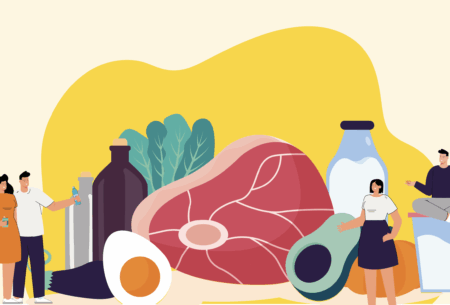 1. Why restrictive eating doesn’t work long-term
1. Why restrictive eating doesn’t work long-term
Eliminating food groups or significantly cutting calories may seem like a quick fix, but studies consistently show it is ineffective in the long run. A study conducted by Memphis State University found that individuals who followed a highly restrictive diet, particularly women, tended to gain more weight over the course of a year. This cycle of restriction followed by overeating is not only frustrating but can also be detrimental to both physical and mental health.
The cycle of restriction and bingeing
When you tell yourself certain foods are off-limits, your brain craves them even more. Research from the University of Toronto found that people who were told to avoid chocolate for a week ate significantly more when given the chance than those who hadn’t restricted themselves. This psychological response, known as the ‘forbidden fruit effect,’ is a key reason why dieting often leads to bingeing.
The gut microbiome impact
Beyond weight, restrictive eating can negatively impact gut health. A diverse diet is essential for a thriving gut microbiome, but unnecessarily eliminating entire food groups – such as carbohydrates or gluten – can deprive beneficial gut bacteria. For example, a study of nearly 200,000 people conducted by Harvard University in the US found that those who consumed the most gluten had a 20% lower risk of type 2 diabetes compared to those with the lowest gluten intake. This isn’t because gluten itself is protective, but rather that gluten-containing foods like barley and rye can benefit gut health.
Plus, a 2019 review by Tufts University in the US showed that a higher intake of whole grains may lower your chances of weight gain. Fibre from the Super Six plant groups is essential for nourishing gut microbes, supporting digestion, and decreasing inflammation. It is also one of the primary ways to support the gut:metabolism connection, where the microbes convert dietary fibre into chemicals known as short-chain fatty acids that help regulate your appetite through various pathways, including increasing GLP-1 (the target hormone for the weight loss drug, Ozempic).
Given the importance of the gut-metabolism connection, you might wonder whether probiotics are worth considering to support weight. However, studies have shown mixed results with a modest impact, indicating that it’s not currently a weight management strategy worth your time or money. Nevertheless, if you’re on antibiotics, your immune system needs support, your vaginal microbiome is out of kilter (bacterial vaginosis or thrush), or if your little one is experiencing colic, it’s worth checking out SMART STRAINS.
The role of metabolism and hormonal balance
When calorie intake is severely restricted, the body adapts by slowing its metabolism to conserve energy. This can lead to increased hunger hormones like ghrelin and decreased satiety hormones like leptin, making long-term weight loss unsustainable. As mentioned earlier, several studies indicate that extreme dieting often results in regaining lost weight (and sometimes even more) due to these metabolic adaptations. Additionally, restrictive diets can disrupt menstrual cycles in women and lower testosterone levels in men, affecting overall hormonal health.
Why balance matters for mental health
Dieting and restrictive eating have been linked to increased stress and anxiety. The body perceives extreme calorie deficits as chronic stress, triggering cortisol elevation, which has been associated with increased fat storage in some individuals. Additionally, insufficient intake of essential nutrients found in many commonly restricted foods while dieting, such as omega-3 fatty acids (think oily fish) and B vitamins (think wholegrains), can negatively impact mood and cognitive function. A well-balanced, nutrient-dense diet supports mental clarity, energy levels, and emotional well-being, thanks to the gut-brain connection.









 1. Why restrictive eating doesn’t work long-term
1. Why restrictive eating doesn’t work long-term 2. The power of INclusion, not EXclusion
2. The power of INclusion, not EXclusion 3. How mindful eating can help break the cycle
3. How mindful eating can help break the cycle Takeaway
Takeaway



